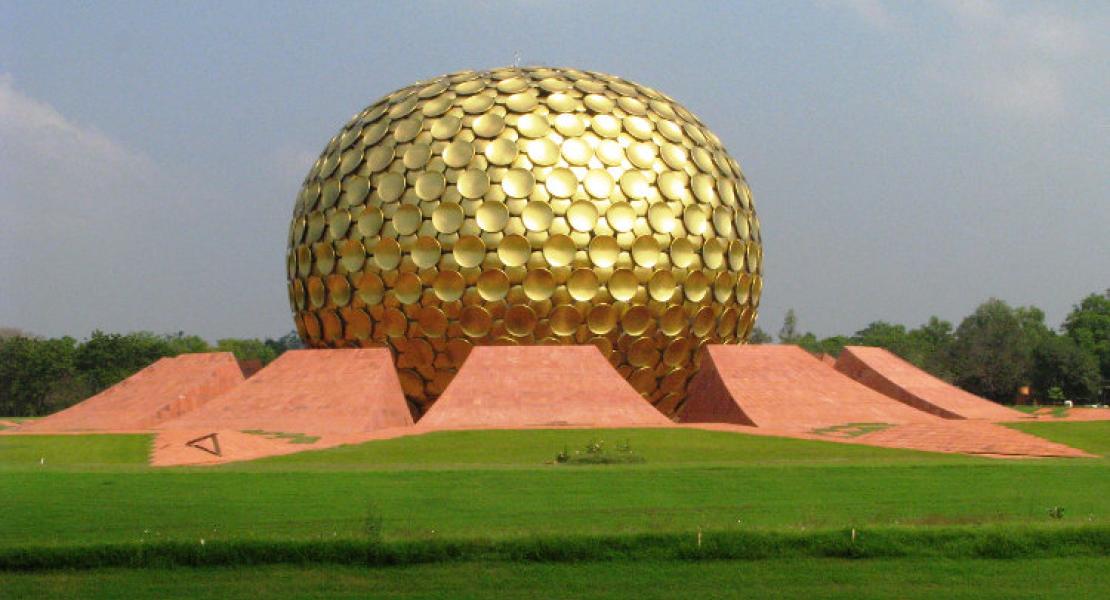The idea of a "universal" city is based on the social theory of Sri Aurobindo and was put into practice by Mira Alfassa, who had organised the Sri Aurobindo Ashram in Puducherry since the 1930s. Together with the Indian government, the concept of a universal city was also presented to the United Nations. In 1966 UNESCO adopted a resolution declaring recognition and support for the project.
The opening and inauguration ceremony on 28 February 1968 was accompanied by the Indian President, representatives from 124 nations and 23 Indian states, who brought earth from their home countries as a symbol of "universal" or "planetary property" and placed and sealed it in the centre of the city in a simple white marble urn specially erected for this purpose. The meeting place for the city community was built around the urn and the sacral central building Matrimandir in the core area of the city of Auroville was built right next to it.
On the occasion of the foundation ceremonies Mira Alfassa read the 4-point foundation charter of Auroville, which documents her vision of integral life and living together:
- Auroville belongs to nobody in particular. Auroville belongs to humanity as a whole. But to live in Auroville, one must be the willing servitor of the Divine Consciousness.
- Auroville will be the place of an unending education, of constant progress, and a youth that never ages.
- Auroville wants to be the bridge between the past and the future. Taking advantage of all discoveries from without and from within, Auroville will boldly spring towards future realisations.
- Auroville will be a site of material and spiritual researches for a living embodiment of an actual Human Unity.
- Log in to post comments
